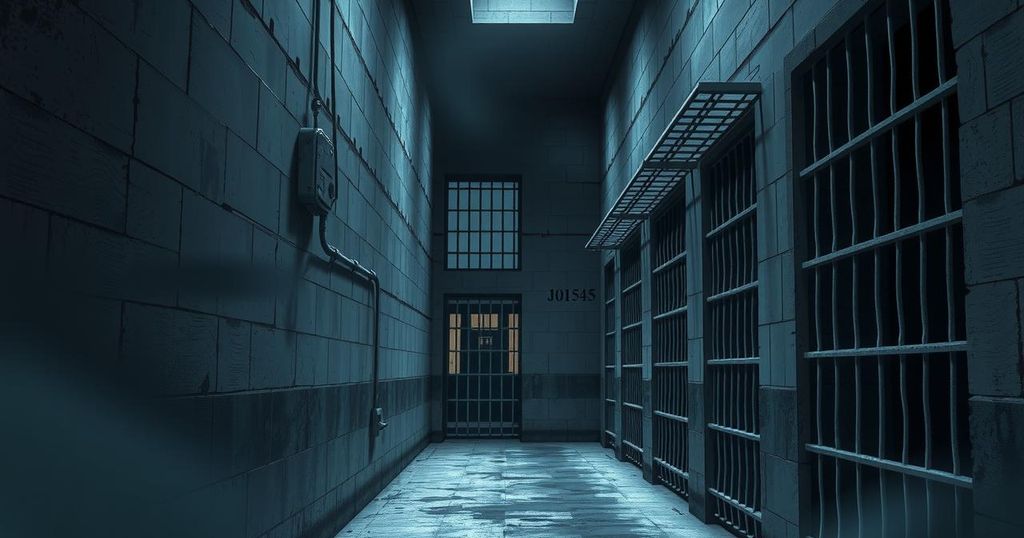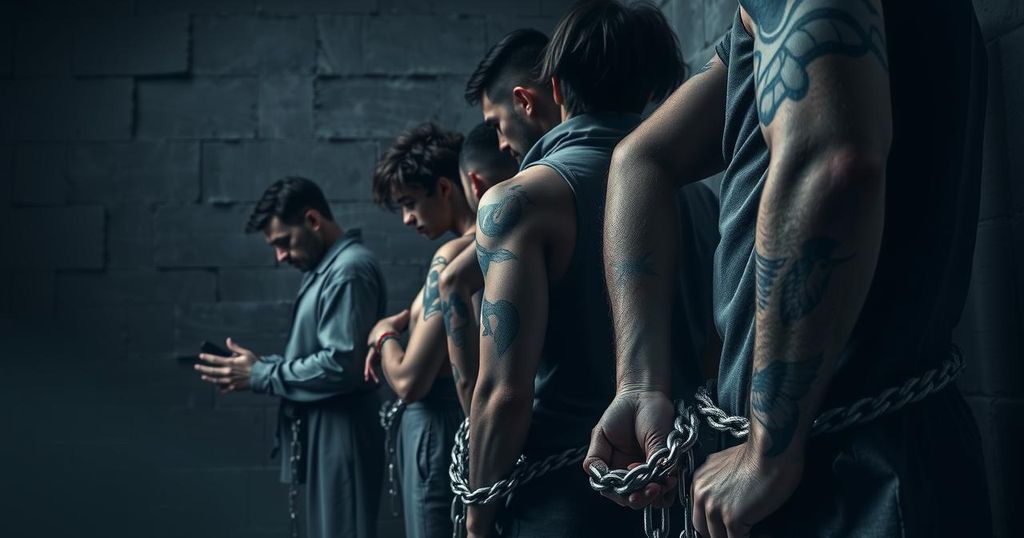Alleged Gang Members Deported to El Salvador: Families Deny Affiliation
The Trump administration has deported over 200 alleged Venezuelan gang members to El Salvador, many without criminal records. Families deny any gang affiliations and express fears for their loved ones’ safety. The deportees include individuals like Maiker Espinoza Escalona and Jerce Reyes Barrios, who claim innocence and pursue better lives.
In recent weeks, over 200 alleged Venezuelan gang members have been deported to a notorious mega-prison in El Salvador under the Trump administration. Many of those sent lack criminal records in the U.S., prompting concerns regarding their alleged gang affiliations. Family members and legal representatives have vocally denied these claims, expressing fears for the safety of their loved ones.
Maiker Espinoza Escalona was deported under Title 8 after attempting to seek asylum in the U.S. with his family. His mother-in-law denounced the accusations of gang affiliation against him as untrue. Escalona’s family insists that he emigrated to pursue a better life through his work as a barber, claiming his tattoos likely led to his detention.
Jose Franco Caraballo Tiapa, another deportee, was detained during a routine check-in for his asylum application. His wife, Ivannoa Sanchez, asserted that he had no criminal record and had been following all legal procedures without issue. She recounted that her husband was taken before a scheduled court appearance in his case, igniting fears for his well-being in El Salvador’s prison system.
Francisco Garcia Casique, also deported on March 15, was detained at an ICE office after initially entering the U.S. legally as an aspiring barber. His family reported that he had no criminal history, with his brother revealing that Garcia Casique merely sought a better future for his family before his deportation turned into a nightmare.
Kilmar Armando Abrego Garcia, a Salvadoran national with U.S. family members, was mistakenly deported to El Salvador despite his legal status. His attorneys continue to advocate against the label of gang membership thrust upon him, questioning the evidence presented by the administration and asserting his innocence.
Jerce Reyes Barrios, a professional soccer player, was apprehended based on tattoos that authorities wrongly associated with gang activity. His attorney highlighted that the tattoo is actually a tribute to a soccer team rather than evidence of criminal ties, contrasting sharply with the administration’s claims supporting his removal to El Salvador.
The recent deportations highlight significant concerns regarding the treatment of alleged gang members, many of whom maintain a lack of criminal records. Family members assert that the accusations against their loved ones are baseless and rooted in fear rather than fact. This situation raises critical questions regarding the fairness and accuracy of immigration enforcement practices under the Trump administration, especially regarding human rights and due process.
Original Source: abcnews.go.com




Post Comment